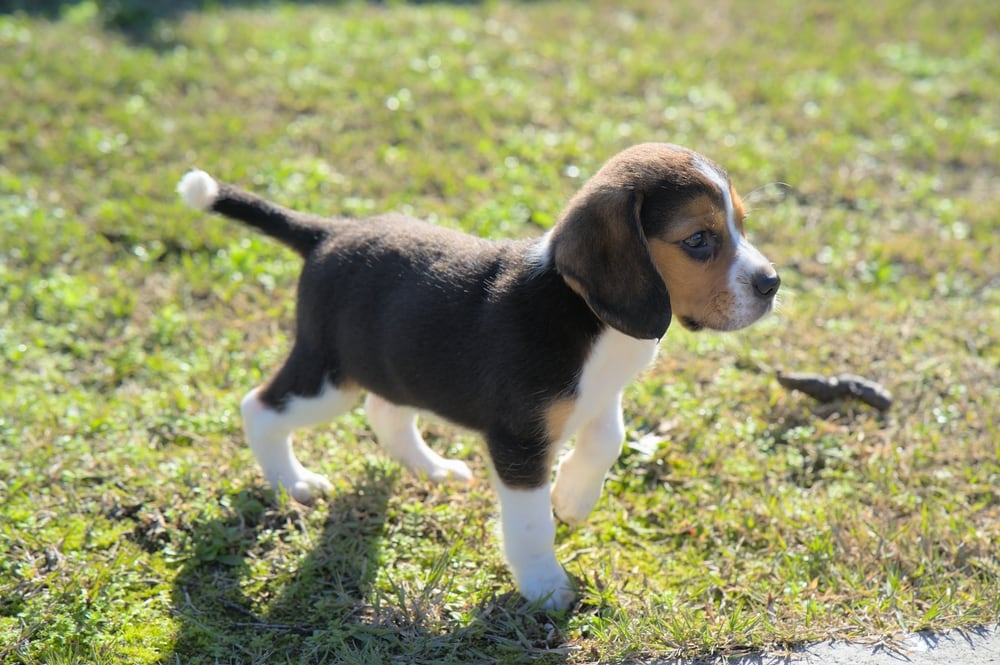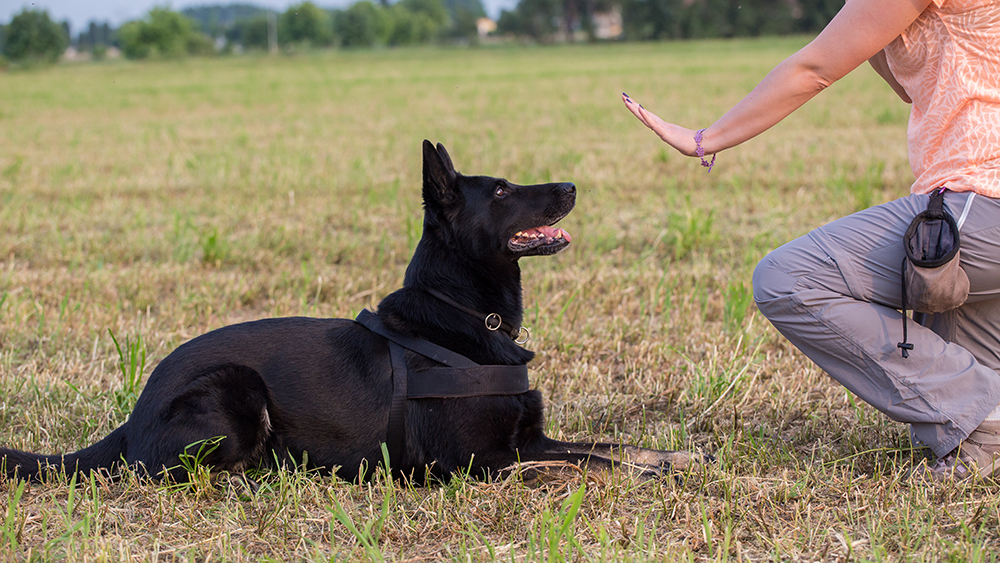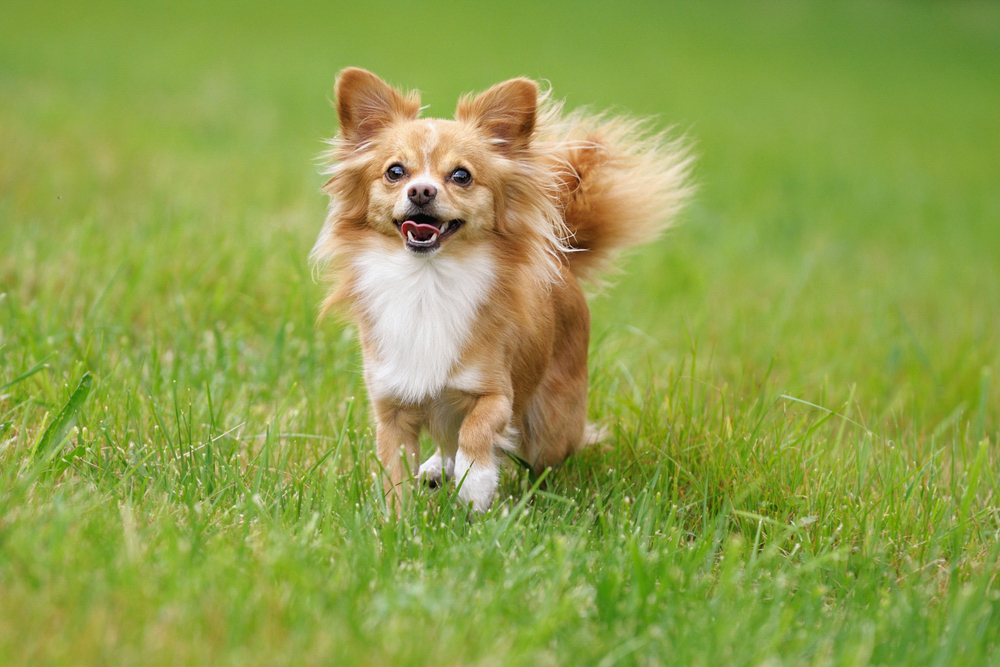Click Below to Skip Ahead
The Beagle is a popular dog, well known for their droopy ears and doe-eyed expressions. They come in various colors, though they are most easily recognized in tan, black, and white. The Beagle’s adorable appearance may draw eyes, but their personality wins over hearts. Beagles are friendly companions with merry dispositions. Their incessant curiosity ensures that no day with them is ever dull.
Breed Overview
Height:
13–15 inches
Weight:
20–30 pounds
Lifespan:
10-15 years
Colors:
Black, red, and white; blue, tan, and white; brown, white, and tan; brown and white; black and tan; lemon; red and white
Suitable for:
Active families, hunters, experienced dog owners
Temperament:
Cheerful and affectionate, curious, energetic, and vocal
The Beagle is an ancient breed developed to hunt rabbits, hares, and other creatures. They arrived in the United States following the Civil War, and their popularity skyrocketed. Their keen noses, unique voices, and zest for the hunt make them excellent partners for the adventurous sort.
At the same time, Beagles are great family pets. They are kind, affectionate, and lively, providing companionship and entertainment for adults and children. If you are considering the Beagle for your family, keep reading to learn about the breed’s personality, intelligence, care needs, and more.
Beagle Characteristics
Beagle Puppies

Beagle puppies can be hyperactive. Their curiosity and energetic personality may cause them to misbehave, and pet parents are advised to purchase all of their pet supplies and accessories before bringing the little rascal home. Care items such as crates, leashes, and collars will help you manage your Beagle puppy’s lively personality. You also need plenty of toys to keep your puppy from becoming bored. A bored puppy can quickly become destructive, so enrichment is essential.
The Beagle will listen to commands, but they can be occasionally stubborn. Teaching your puppy to obey your commands early on will help you with training later in life. Also, the Beagle is vocal, so training your puppy to bark when appropriate will be essential.
A quality many dog lovers appreciate about the Beagle is their lack of “doggy smell.” They also aren’t prone to drooling. While they don’t shed excessively, they shed often enough, so be prepared to clean up after them.
Temperament & Intelligence of the Beagle
Beagles are natural hunters, are highly energetic, and constantly need mental stimulation. Their curious nature and strong sense of smell can lead them to the most unexpected adventures. It can also get them into messes, as the Beagle has a mind for troublemaking.
Keep an eye on your Beagle to ensure their mischievous attitude doesn’t cause problems and instead engage with their playful side constructively, such as through training and toys. The Beagle is affectionate and social, even willing to give strangers a chance at becoming their friend.
Since they’re so social, they need lots of attention and do best with families who have plenty of time to spend with their pets. Beagles are intelligent yet stubborn. Early training can help you to manage their stubborn nature, but it won’t entirely rid the Beagle of their headstrong attitude. Learning how to redirect the Beagle and incentivize them to listen to your command is essential.

Are These Dogs Good for Families? 👪
The Beagle is a great family dog. They are affectionate, cheerful, and always eager to play. They are also excellent with young children. Still, all interactions between your Beagle and young children should be supervised until your dog is fully trained and the children understand proper boundaries with pets.
Does This Breed Get Along With Other Pets?
Beagles are great dogs for multi-pet families, and they get along fantastic with other animals. Be aware that the Beagle’s hunting instincts may cause them to view smaller animals as prey. If they aren’t properly trained, they may chase cats or small mammals, causing stress and possibly even injuries.
Things to Know When Owning a Beagle
If you’ve decided that the Beagle’s personality fits your needs, the next step is to ensure that your family fits theirs. Dogs are a long-term commitment and deserve a high standard of care. Like any breed, the Beagle has specific dietary needs, exercise, and training requirements. To learn more about the Beagle’s care needs, keep reading below.
Food & Diet Requirements 🦴
Feeding your Beagle high-quality, AAFCO-certified meals is an excellent way to ensure they are getting the nutrients they need. Formulas designed for sensitive skin may benefit your Beagle, as they can be prone to allergies that may irritate their skin. Before putting your pet on a specialized diet, talk to your vet to determine whether it is suitable for your Beagle.
It is important to note that Beagles are prone to obesity, so managing their caloric intake is crucial. To determine how much to feed your Beagle, talk to your vet. They can give you a thorough answer based on your dog’s age, health status, weight, and more.
It’s vital to recognize the Beagle’s enthusiasm for eating. Some Beagles eat so quickly that they choke or vomit. If your Beagle does the same, a slow feeder bowl can force your dog to eat at a moderate pace.

Exercise 🐕
Beagles are energetic and need at least one hour of exercise each day. They don’t enjoy spending prolonged periods alone, so they shouldn’t be left alone in the backyard for long. Also, they can be clever escape artists when they want to be, so fences and other obstacles won’t be enough to ensure that your pet stays in the yard.
Therefore, exercising with your dog is crucial. You can play fetch, take brisk walks, or find other ways to play with your pet. Just make sure you are confident in your recall ability and always have a leash on hand. If your Beagle catches a scent, they can bolt at a moment’s notice.
Training 🎾
Without proper obedience training, the Beagle can be stubborn. That is why early training is so important. The dog is adaptable and intelligent, so training them shouldn’t be exceptionally difficult.
The trick will be to cater to the Beagle’s learning style by providing plenty of positive reinforcement. Since Beagles tend to be food-motivated, tasty treats will go a long way to convince them to learn with you.

Grooming ✂️
Beagles have short, smooth coats. This makes them fairly low-maintenance in terms of grooming. Weekly brushing with a medium-bristle brush should be enough to manage their shedding. Keep in mind that the Beagle sheds moderately most of the year, but in the spring, they shed profusely as they blow their winter coat.
It is also important to clean the Beagle’s ears once or twice monthly. Their floppy ears can make them prone to ear infections, and checking and cleaning them frequently can prevent that. For dental care, you’ll need a canine toothpaste and toothbrush. Brushing their teeth two to three times a week will prevent tartar and plaque from damaging their teeth.
- See Also: 11 Best Dog Shampoos
Health and Conditions 🏥
The Beagle is prone to serious and minor health conditions. The most worrying conditions your Beagle may be predisposed to include obesity, epilepsy, and hypothyroidism. Beagles with epilepsy suffer recurrent seizures despite their seemingly normal brain activity.
It is believed that there is a strong genetic component behind epilepsy in dogs, as it is seen more often in specific breeds. Sadly, the Beagle is among them.
Hypothyroidism occurs when a dog’s thyroid is underactive, causing their metabolism to decrease. This can be an issue in breeds already prone to obesity, like the Beagle. If you notice unexplained weight gain, lethargy, and poor coat quality, your Beagle may have hypothyroidism.
Relatively minor conditions include ear infections, cherry eye, and allergies. Dogs with cherry eye have a prolapsed third eyelid, meaning it has popped out of place. It may be big or small, but it typically appears red and swollen. Surgery is the required treatment, and it must be done promptly to avoid damage to the eye.
- Ear infections
- Cherry eye
- Allergies
- Obesity
- Epilepsy
- Hypothyroidism
Male vs Female
The main difference between the male and female is the Beagle’s size. Males are typically taller and heavier than females, but that is not always the case. If your Beagle is not spayed or neutered, the differences in the sexes may be more pronounced. Males may be more aggressive and have a strong desire to wander, whereas females will go into regular heats.
3 Little-Known Facts About the Beagle
1. Their Long, Floppy Ears Serve an Important Function
Beagles have adorable ears that serve an important function. They’re designed to capture scent particles and draw them closer to the Beagle’s nose, contributing to their keen sense of smell.
2. Beagles Can Make Three Unique Sounds
The Beagle is a vocal breed, but they do more than just bark. In addition to the standard bark, the Beagle can also howl and yodel.
3. Snoopy Is a Beagle
Snoopy is arguably one of the most popular dogs in pop culture. But did you know that he is a Beagle? While his black and white coat may not look like the tan, black, and white that most people expect from the breed, Charlie Brown’s best friend is truly a Beagle.
Conclusion
Whether you’re a hunter or a dog lover in search of a family pet, the Beagle is a fantastic addition to a loving family. This energetic, curious, playful companion can entertain children, adults, and other pets. While they require a lot of activity and attention, their affectionate, cheerful nature makes the extra effort well worth it.
If you are considering bringing a Beagle into your home, you can search for your newest companion at your local animal shelter or through a breeder. If you choose to work with a breeder, do your research and ensure that you find an ethical, reputable breeder.
Featured Image Credit: Artyom Gantsev, Shutterstock














